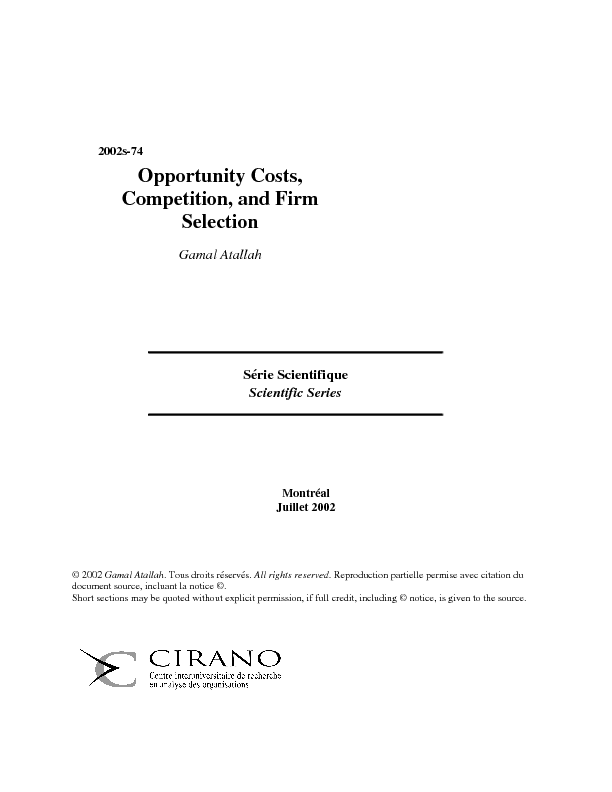Opportunity Costs, Competition, and Firm Selection
The paper questions the standard economic assumptions that competing economic agents have identical reservation utility levels, and that when differences in opportunity costs exit, they can be conveniently represented by fixed costs. Opportunity costs are endogenized by linking them to current efficiency. The effect of this interchangeability of skills is studied in the context of the effect of entry on firm selection in a Cournot setting. It is found that inefficient firms are more likely to crowd out efficient ones when the relationship between current efficiency and opportunity costs is strong, and when the fixed costs of changing markets are high. Moreover, in the long run firms with intermediate cost levels are likely to induce the exit of low and high cost firms.
[ - ]




